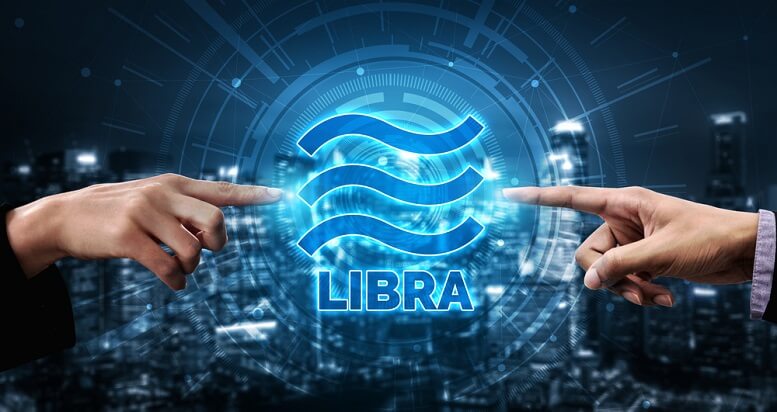 If you want a genuine cryptocurrency experience, don’t look to Facebook.The social media giant has lately made headlines around the world for introducing its Libra cryptocurrency and related nonprofit Libra Association. The popular understanding is that Libra is Facebook’s response to Bitcoin, Ether, and other popular crypto coins—it’s a new way to transmit value on the blockchain. It’s understandably being called a “cryptocurrency.” Except it’s not a standard cryptocurrency at all.
If you want a genuine cryptocurrency experience, don’t look to Facebook.The social media giant has lately made headlines around the world for introducing its Libra cryptocurrency and related nonprofit Libra Association. The popular understanding is that Libra is Facebook’s response to Bitcoin, Ether, and other popular crypto coins—it’s a new way to transmit value on the blockchain. It’s understandably being called a “cryptocurrency.” Except it’s not a standard cryptocurrency at all.
Libra is a permissioned digital currency quite comparable to stablecoins that already exist
There’s already a whole ecosystem of price-stable cryptocurrencies out there, so Libra fits right into an existing picture. But it does have some unique features that make it worth talking about. Where most stablecoins are pegged to an individual fiat currency, Libra is backed by a basket of fiat, including USD, as well as bank deposits and short-term government securities. This theoretically makes it more robust than stablecoins backed by a single asset. If the value of USD suddenly fell overnight, most other stablecoins would see their own values squashed. But by deriving value from multiple sources, Libra can potentially remain steady against a variety of market turmoil.
Libra is commonly called “Facebook’s cryptocurrency,” but there are many other players involved—this is hardly an autonomous organization
A predetermined set of entities, collectively referred to as the Libra Association, have total power to shape the consensus and governance mechanisms that drive Facebook’s blockchain project. Members of this association beyond Facebook include PayPal, Mastercard, Visa, Lyft, eBay, Spotify, Uber, and more. Where the promise of true cryptocurrency is about decentralization, power is highly centralized within this association. The speculation is that Libra will first be used as a way for companies to pay for ads on Facebook. But if the use cases expand to include remittance between Facebook users, there’s a strong possibility of there being an instantly large user base conducting transactions around the globe—Facebook’s social network already touches more than two billion lives today. It could easily lead to a new economy on the scale of a large nation. It’s not clear why such a centralized organization needs a blockchain effort. Implementations of this technology fundamentally rely on decentralization to dilute power. But Libra’s technical documentation makes it clear: this is a ledger with corporate governance, not a true permissionless blockchain. >> Libra to Be at the Center of the EU’s New Crypto Regulations
The powers that be are paying a lot of attention to Libra
Even the US Congress agrees that there’s a fundamental difference in how true cryptos like Bitcoin and Ether operate, and how Libra is constructed. That’s why the word “Bitcoin” was conspicuously absent from the Senate hearing addressing the social media giant’s planned foray into the crypto space. Satoshi Nakamoto’s original vision is rather absent in design and spirit here. Even though the US is generally favorable to cryptocurrency, regulators have asked for nothing less than Facebook to completely stop developing Libra. It would appear to have less to do with the underlying technology and more to do with who’s wielding it. The concern is that Libra will undermine the US dollar banking system. The legal structure that drives Libra was set up in Switzerland, so it’s theoretically free to continue as it wishes despite concern from the US government—Switzerland tends to be even more favorable to innovations in financial technology than America. But even though Facebook indicated that Swiss regulators will supervise the major aspects of its Libra project, the relevant authorities simply haven’t heard from the company yet.
But it’s not all bad news
Libra represents one of the most mainstream blockchain projects to come into existence, and it’s backed by some of the biggest companies in the world. It can only be interpreted as a vote of confidence for blockchain technology and cryptocurrencies at large. The markets responded accordingly—when Libra’s formal announcement broke on June 18, BTC was trading at just over $9,000. A week-long rally followed, eventually sending the price up above $13,500. Even though this isn’t a strict Satoshi-satisfactory cryptocurrency system, it still seems poised to present another powerful disintermediation between banks and people’s ability to control their own money. The large population of “unbanked” people around the world will gain access to a new tool for managing their financial lives with new convenience. But don’t expect crypto purists to be excited about Facebook’s foray into a space that’s been working just fine without them for the previous ten years. Libra has issues with permission and centralization that have been completely absent from the rest of the crypto world since day one. This category of technology was already doing fine before Libra showed up, but it will probably do a little better with this much added momentum. Just don’t call it a true cryptocurrency. This article was curated through CryptoCurrencyNews’ Contributor Program. If you would like to write for us, send us your submission! Featured image: DepositPhotos © BiancoBlue

